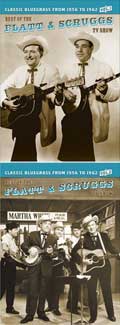Yesterday I posted about about the controversy that Steve Jobs stirred up with his open letter to the music industry concerning digital downloads and DRM. Today two things caught my attention while doing some reading online.
The first is a rumor that EMI is considering licensing it’s entire catalog to online retailers as unrestricted mp3s. The Wall Street Journal (subscription required to read full story) recently reported on this rumor.
In a move that could signal a shift in the music industry’s antipiracy strategy, EMI Group PLC has been holding talks with several online retailers about the possibility of selling its entire digital music catalog in the unprotected MP3 format, which can be freely copied and played on virtually any device…
 My understanding is that EMI at first sought upfront cash payments from the retailers in an effort to insure against what the label deemed “potential losses.” The retailers didn’t entirely like the idea and are now offering counter-proposals as negotiations continue. My take on this is that EMI still thinks that selling their music online, unprotected by DRM, will result in piracy and a loss of sales. If Steve Jobs is right and EMI is wrong, this could provide an opportunity for online retailers who have the available capitol to take advantage of the labels fear by negotiating an initial payment followed by lower per track payments on the backend. I don’t know the details of the offered deal though, and it seems likely that EMI is trying to position itself to gain from either scenario.
My understanding is that EMI at first sought upfront cash payments from the retailers in an effort to insure against what the label deemed “potential losses.” The retailers didn’t entirely like the idea and are now offering counter-proposals as negotiations continue. My take on this is that EMI still thinks that selling their music online, unprotected by DRM, will result in piracy and a loss of sales. If Steve Jobs is right and EMI is wrong, this could provide an opportunity for online retailers who have the available capitol to take advantage of the labels fear by negotiating an initial payment followed by lower per track payments on the backend. I don’t know the details of the offered deal though, and it seems likely that EMI is trying to position itself to gain from either scenario.
Other major labels are taking the defensive against Jobs’ challenge. It should be interesting to watch where this goes in the next year or so.
The second matter is only slightly releated, but an article on the CMT.com website is drawing parallels between Jobs’ attitude toward the industry and that of the early Flatt & Scruggs. The author of the piece traces the condition of the industry in relation to anemic sales of country music CDs and talks about Jobs’ idea of selling unprotected mp3s. He then goes on to talk about the soon to be released Flatt & Scruggs DVDs and the band’s attitude toward being on TV. At the end of the article he compares their attitude to that of Jobs.
Flatt & Scruggs never met Steve Jobs, obviously. But if they had met, they would have recognized themselves as brothers-in-arms. For they had a common goal: to dominate their market and leave a mark. And they both did so.







